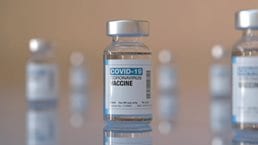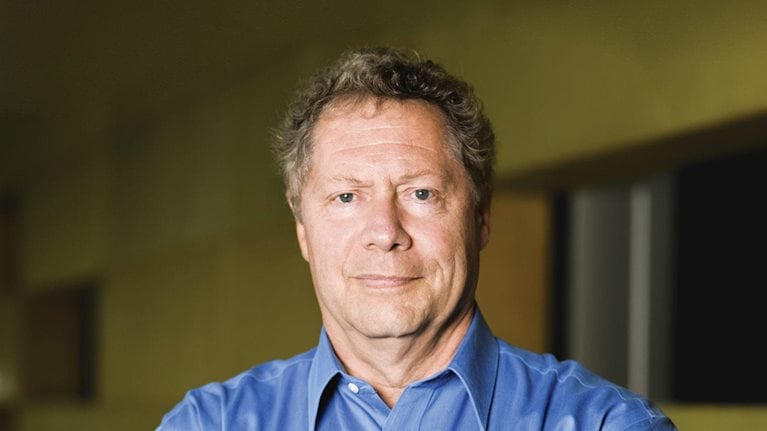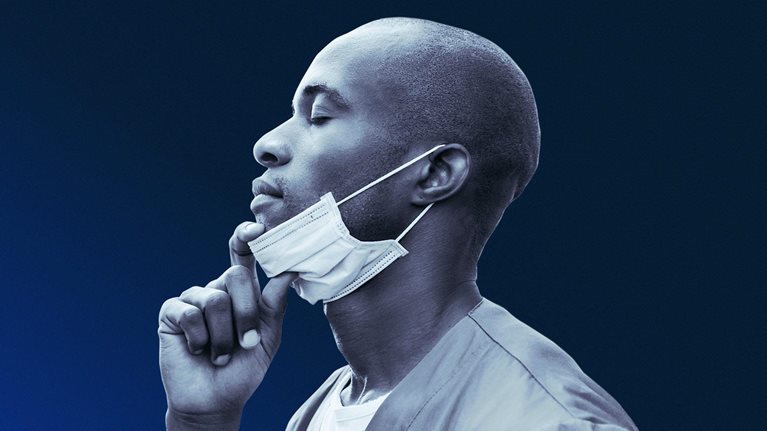This interview is part of COVID-19 vaccines: The road to recovery and beyond, a series that includes a broad array of voices leading the historic global effort to develop, distribute, and provide equitable access to COVID-19 vaccines, including the Africa CDC; CEPI; Gavi, the Vaccine Alliance; Moderna; and Pfizer.
The COVID-19 pandemic has resulted in devastating public-health and economic outcomes. It also spurred one of the most promising scientific feats in the last century—the development of several highly effective vaccines authorized for emergency use by the US Food and Drug Administration (FDA) in less than one year.
This achievement required unprecedented mobilization and the cooperation of a broad set of global stakeholders in both the public and private sectors, including governments, vaccine developers, and public-health organizations. Building on deep scientific knowledge gained from years of experience working with viruses, such as MERS, SARS, influenza, HIV, and Hepatitis C, the medical industry’s private sector has made immense progress in advancing potential treatments and vaccines to help address COVID-19.1 Looking ahead, the breakthroughs stemming from COVID-19 hold vast potential for the broader vaccines industry with the emergence of ground-breaking innovation, more public engagement, and increased focus from health officials.
Making inroads in the fight against COVID-19 is Massachusetts-based biotech company Moderna, which has been looking to innovate approaches to vaccine development since the company’s start in 2010. Before COVID-19, Moderna already had a new class of vaccines in the works that use messenger ribonucleic acid, or mRNA,2 which instructs a patient’s own cells to produce the proteins needed to activate the immune system to prevent illness. “The potential implications of using mRNA as a drug are significant and far-reaching and could meaningfully improve how medicines are discovered, developed, and manufactured,” says Moderna’s CEO Stéphane Bancel.
Bancel spoke with McKinsey’s Olivier Leclerc about why he believes his company was well positioned to respond to the COVID-19 crisis, how scientific breakthroughs with mRNA led to an effective COVID-19 vaccine, and what it takes to lead his company for long-term impact during the crisis. Below is an edited excerpt of Bancel’s remarks.
Responding to COVID-19
McKinsey: Vaccine development is a long, complex process. How did Moderna step up when the pandemic was declared?
Stéphane Bancel: By March 2020, the World Health Organization [WHO] declared COVID-19 a pandemic, and we were racing against the virus every day while we still had almost 20 non-COVID-19 programs that needed to keep moving. We raised the cadence of our executive-committee meetings from once a month to once or twice a week to have a clock speed that was adapted to the situation. We also used a decentralized model, which gave the distinct teams the independence to move quickly. The pace was unprecedented, fueled by the need to respond to a pandemic situation. To deliver on our goal of 100 million doses of COVID-19 vaccines within 12 months3 and a billion doses by the end of 2021, the team worked seven days a week and, at times, pulled all-nighters. If it weren’t for the extraordinary people I work with—who are selfless, mission-driven, and committed to building the best version of Moderna possible—we would not be where we are today.
McKinsey: Considering the intense pressure to develop an effective vaccine, how was interaction with the US government managed?
Stéphane Bancel: It came down to the collaboration between the pharmaceutical industry and the US federal government. The US government picked three different technologies to invest in for a diversified risk profile and then chose two pharmaceutical companies per technology. In the end, they were betting on six different companies. It was a brilliant move. The conditions of the contract included a base business of 100 million doses, with options to increase depending on the clinical data and the efficacy at the time of launch. This allowed us to take on a lot of business risk at a time when every single day mattered.
The other key part of this equation is that the FDA worked relentlessly to authorize the Moderna COVID-19 vaccine, and others, with an emergency use authorization [EUA]. Usually, you submit a question to the FDA, and they have a defined timeline for responding and engaging with clinical-trial sponsors. But they adapted to the crisis situation. During the pandemic, we could reach out to them any time—including weekends.
McKinsey: What were some difficult decisions you faced while developing the COVID-19 vaccine?
Stéphane Bancel: One tough spot we were in was deciding whether to slow down our Phase 3 clinical study. The study began on July 27, 2020, and the first few weeks were fantastic. However, we weren’t enrolling enough people from diverse backgrounds into the study, especially those disproportionally affected by COVID-19, such as African Americans. We felt we were failing society if we didn’t include communities most impacted by the virus. After many discussions, we decided to slow down the study, which made a big impact on our timeline. But at the end of the day, when you step back and look at the big picture, you can see that the tough decisions are well worth it.
We are now one of the first biotech companies to publish the demographic data of our clinical trials. In our Phase 3 study, we had 9.7 percent African American or Black participants, 4.7 percent Asian, 0.8 percent American Indian or Alaska Native, and 20.0 percent Hispanic participants, which reflects a greater diversity among participants than many other previous drug trials.4
Delivering innovative solutions
McKinsey: What is mRNA technology? And why is it so effective against COVID-19?
Stéphane Bancel: Simply put, messenger RNA [mRNA] vaccines are a new type of medicine that trigger an immune response to protect against infectious diseases. Many other vaccines put a weakened or inactivated virus into the body to trigger that response. Instead, mRNA vaccines teach our bodies how to make a protein, or a piece of a protein, to get the same result.
Moderna’s COVID-19 mRNA vaccine tells your cells to make a harmless viral protein called a spike. This stimulates your immune system to make antibodies and immune cells that counterattack the spike when they come across it. When scientists published the genetic code for the COVID-19 virus in January of 2020, we realized that the spike protein of the Middle East Respiratory Syndrome [MERS], and SARS-CoV-25 were very similar. In our previous work on the MERS virus with Dr. Anthony Fauci’s team at the National Institute of Allergy and Infectious Diseases [NIAID], we determined that the best vaccine using Moderna immunotechnology was a full-length spike protein. Based on that work, and all the work we had done on vaccines before, we were hopeful that we were off to a great start.
McKinsey: How can Moderna’s mRNA platform respond to new variants of coronavirus and their potential to evade the immune system?
Stéphane Bancel: Some mutations of the COVID-19 virus will likely have no impact on our vaccine’s efficacy, while others might. With several mutations, there is more and more “drift” from the original SARS-CoV-2 that was sequenced. Our mRNA platform lets us create new versions of the vaccine to attach to that variant in a matter of weeks. In January 2020, it took us just 42 days to go from a sequence of the SARS-CoV-2 virus to shipping the first product for human clinical trial to the federal government. The mRNA platform also allows for multiple variant sequences to be included in one vial, which lets us respond to new mutations faster than ever.
Our team, like most scientists around the world, has been following new variants, and we continue to have clinical trials under way. One of the benefits of mRNA is the flexibility and speed to development. We have been closely monitoring how our authorized COVID-19 vaccine protects against emerging variants, and in parallel, we are advancing our booster strategy.
McKinsey: Now that mRNA technology has been proven to work for COVID-19, what role do you expect it to play in the future of medicine and healthcare?
Stéphane Bancel: At Moderna, our mission is to deliver on the promise of mRNA science to create a new generation of transformative medicines for patients. Since mRNA is an information-based platform, it works similar to a computer’s operating system, letting researchers insert new genetic code from a virus—like adding an app—to create a new vaccine quickly. When COVID-19 struck, we already had nine vaccines in clinical trials using mRNA technology. The COVID-19 vaccine was our tenth. Because we had invested in building our mRNA platform, it was basically a copy and paste—inserting the new genetic code into our preexisting platform. It’s this type of technology that helped Moderna develop a COVID-19 vaccine in only 11 months.6
Since mRNA is an information-based platform, it works similar to a computer’s operating system, letting researchers insert new genetic code from a virus—like adding an app—to create a new vaccine quickly.
We are now in a world where mRNA as a platform has been derisked for use in vaccines and can be authorized for emergency use. Moving forward, using genetic information—either human genes or the genome of a virus—gives us more opportunities for new mRNA programs. Moderna was always built to scale up, and we plan to conduct larger trials and accelerate our clinical programs. We are studying the use of our mRNA platform to develop medicines for infections of the lung and many other organ systems where we hope mRNA may help patients.
Looking ahead at the opportunities for faster product innovation and delivery—combined with a world where the general public, healthcare professionals, and governments are more conscious of the spread of viruses and willing to invest in treatment—I think there is an opportunity with mRNA to transform infectious diseases in the next five years.
Creating impact for the long haul
McKinsey: What has helped Moderna deliver impact—not just over the past year, but also over the past ten years?
Stéphane Bancel: I’m obsessed with digitalization. At past companies, I was extremely frustrated about the time we wasted as a business not serving the customer and not pushing the envelope because we didn’t have data or the data were incorrect. I remember a moment that shifted my thinking for the rest of my career. It was the year 2000, and I was fresh out of business school and working for a big pharma company. I spent a week chasing down a manufacturing lot. The internet was booming, yet I was still sending emails trying to locate a lot—information that should have been available to me from any device or computer system. Now at Moderna, we challenge ourselves daily to digitize the company better.
The process starts by being very thoughtful about technology, building our own apps, adding the right people, and then giving all employees access to that technology. The last step is very important. Everyone at the company has access to our systems from anywhere via their company mobile device—whether they are approving an invoice or designing a drug. This digital experience is completely ingrained in our DNA.
One of the biggest challenges over the next three years for both the HR team and the digital team is to incorporate more artificial intelligence as part of our process. With all of the structured data we’ve gathered—through preclinical trials, research, and experiments—we’ve been able to build better algorithms. These algorithms are enabling us to employ machine learning and make faster decisions. For instance, we can get predictions in the clinical space that humans wouldn’t be able to make in a reasonable amount of time.

Coronavirus vaccines progress: What’s next?
McKinsey: Managing for the long haul can be hard under normal circumstances. Did you have to adjust your leadership style in response to the crisis?
Stéphane Bancel: One of the hardest things to deal with in this type of crisis is being able to go the distance. Many of us end up working more hours under stress when we are in crisis mode, which tends to come at the expense of our health and well-being. It’s important to make the right lifestyle choices to avoid possible burnout. I’ve learned over the years that engaging in sports and getting good sleep is critical for me in managing my stress. Everyone needs to find what works best for them to maintain that type of pace, or else it’s just not possible to sustain.
I also learned that fighting COVID-19 has to be a team effort. When we’re juggling many decisions, it’s the team that has to keep all the pieces in the air at the same time. And subsets of the team need to be able to accomplish a task or get aligned even if I’m not in the room. To do so, the team needs to be informed and have enough pieces of the puzzle to be effective and avoid any disconnects. It also takes being even clearer than usual on our goals, articulating those goals clearly, and passing the ball when needed. Our whole team needs to be moving in the same direction.
This content is provided “as is” solely for informational purposes. It is not legal, health, or safety advice. Organizations should engage their own experts to ensure any adopted measures are compliant with applicable laws and standards in their jurisdictions. The opinions expressed by individuals or organizations are their own and do not reflect the views or opinions of McKinsey & Company. References to specific products or organizations do not constitute any endorsement or recommendation by McKinsey.


